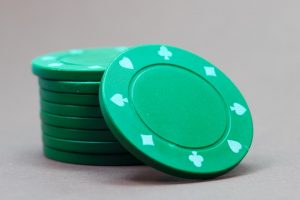 Continuing the recent topics, let's consider how the myth of the feeling player might arise. How can someone who doesn't analyze their hands at all become a good player? This is not such a rare phenomenon.
Continuing the recent topics, let's consider how the myth of the feeling player might arise. How can someone who doesn't analyze their hands at all become a good player? This is not such a rare phenomenon.
First, let's remember that poker is a probabilistic game – it is uncertain. In part, it gives random feedback on your play. For example: you made a good check-raise, but your feedback can still be negative (the check-raise failed and you lost the pot) 40% of the time. There is also second-level stochasticity (probability theory and statistics) – your check-raise might be good against 80% of players who have the same reads as your opponent and bad against 20%, so even if you made a bad check-raise against this player, there is a 20% chance that on average it will be a good action. Add coolers and bad beats to all this, and you will see what unreliable and chaotic feedback this game provides.
However, the idea we are now analyzing suggests that the feeling player responds specifically to the incoming feedback. He does not use theory to speed up his learning process. He simply listens to what poker tells him, a little yes, a little no, the player is simply conditioned by the feedback of a won or lost hand. Such a player is like a person learning to balance on one leg, gradually becoming more skilled, his body constantly pushing him in the right direction. This probably sounds unrealistic, isn't poker too chaotic for such a player to become skilled?
Let's consider a hypothetical simulation (known as a Monte Carlo simulation). Imagine one group of players who play based on theory and another group of players who play based on feelings. Both groups have 1,000,000 participants. Of course, many theoretical players will fail because they might not be smart enough, might tilt very quickly, or might just be unlucky, but let's say that only 30% of players will be successful poker players. So, we have 300,000 surviving theoretical players. On the other hand, many feeling players will also fail – poker is quite a random game and such players' learning is completely unstructured, so they will fall like flies. Speaking of numbers and the fact that poker will allow some players to develop good skills, let's say that 0.5% of them will succeed. There will be a total of 5,000 successful feeling players.
game and such players' learning is completely unstructured, so they will fall like flies. Speaking of numbers and the fact that poker will allow some players to develop good skills, let's say that 0.5% of them will succeed. There will be a total of 5,000 successful feeling players.
We have 1 feeling player for every 60 theoretical players. The ratio significantly leans to one side. However, that's enough, so I wouldn't be surprised if a few feeling players randomly ended up among the top 300 in the world. Such a player still seems like a big phenomenon, even though there are more than 1 in 60.
In reality, feeling players are usually very rare, especially at high limits, we just tend to notice them more. This is a cognitive bias of availability, the mind tends to exaggerate it.
Meanwhile, theoretical players are all around us. They are boring and mechanical. But the feeling player is emotional, rare, and charming, so we pay so much attention to him. Every word is dedicated to them, we watch their game and are interested in them. Why? Maybe because they are like us. Feeling players make risky decisions, they tilt. They do things that normally no one would do. Even the idea of becoming a feeling player, instead of a boring and meticulous theory grinder, seems exciting. The feeling player appears to show us that anyone can win in poker. You don't need to be a genius, spend thousands of hours studying the game, or have great combinatorial skills.
Haseeb Qureshi





